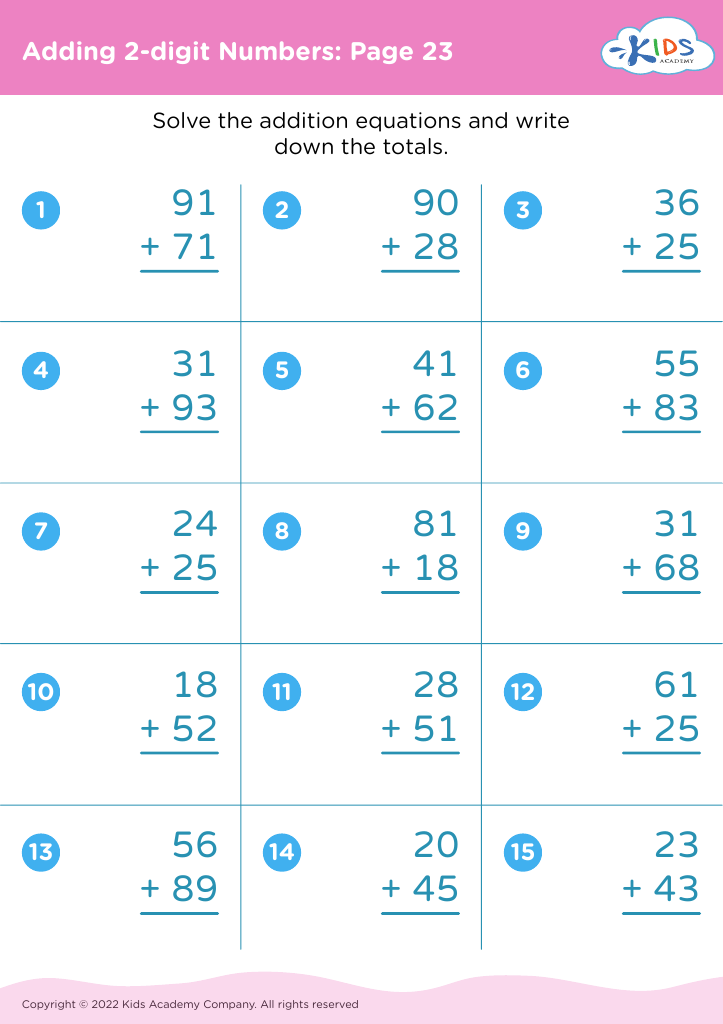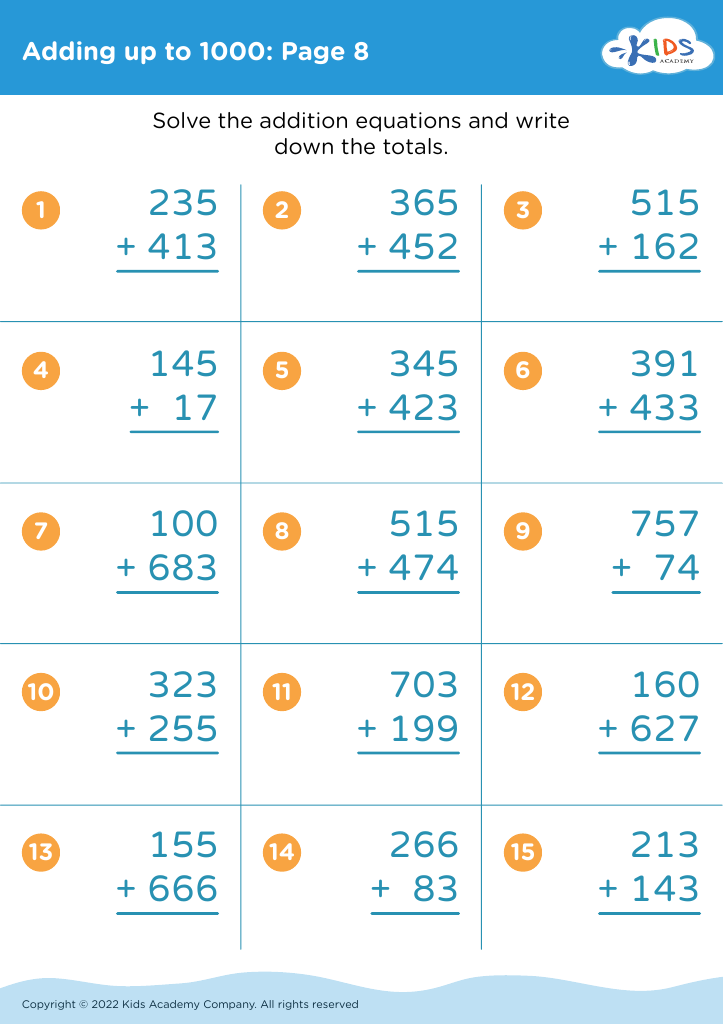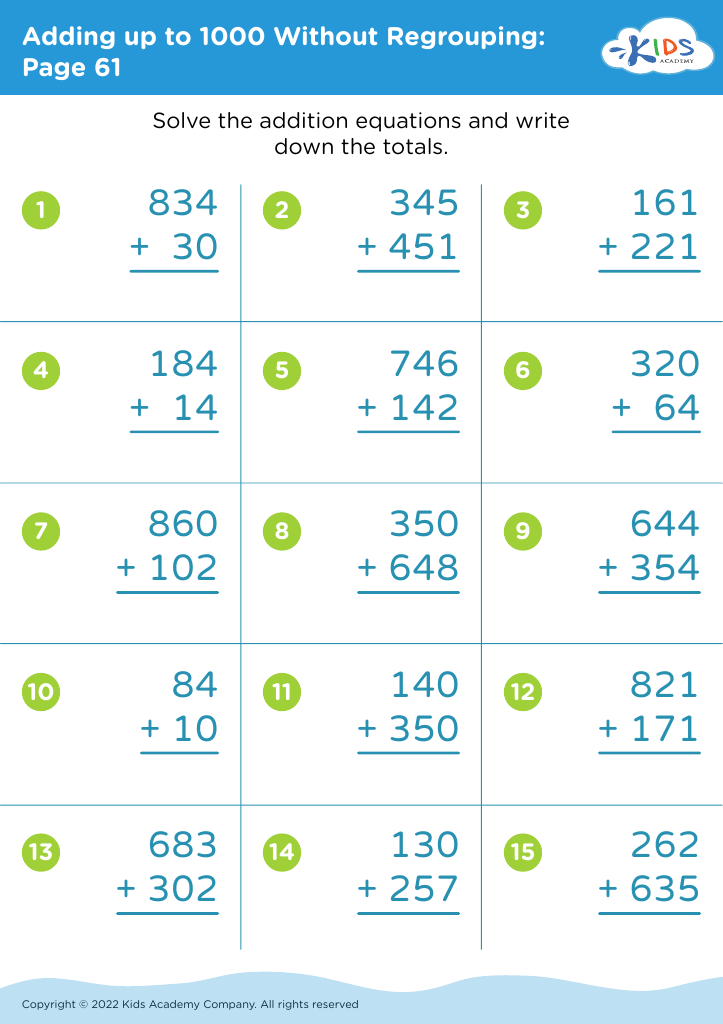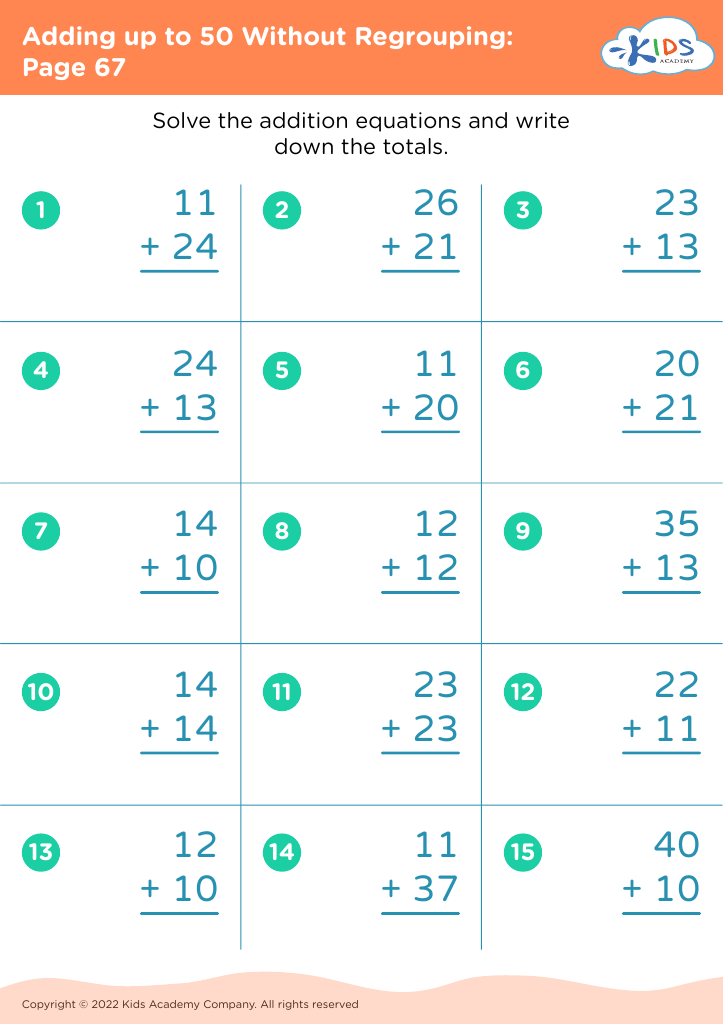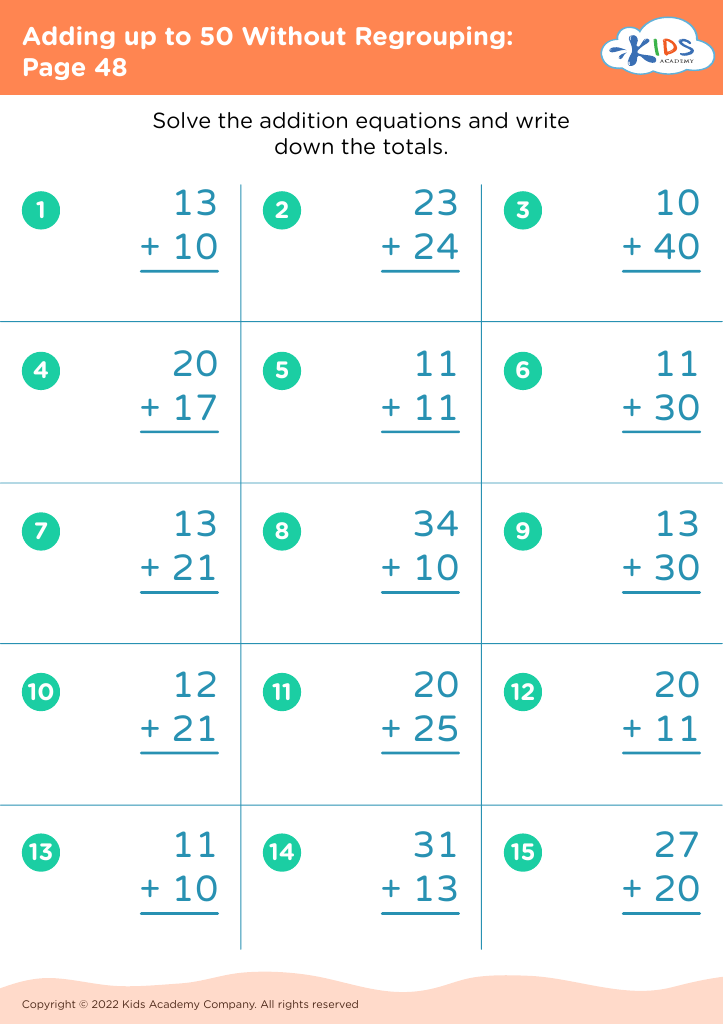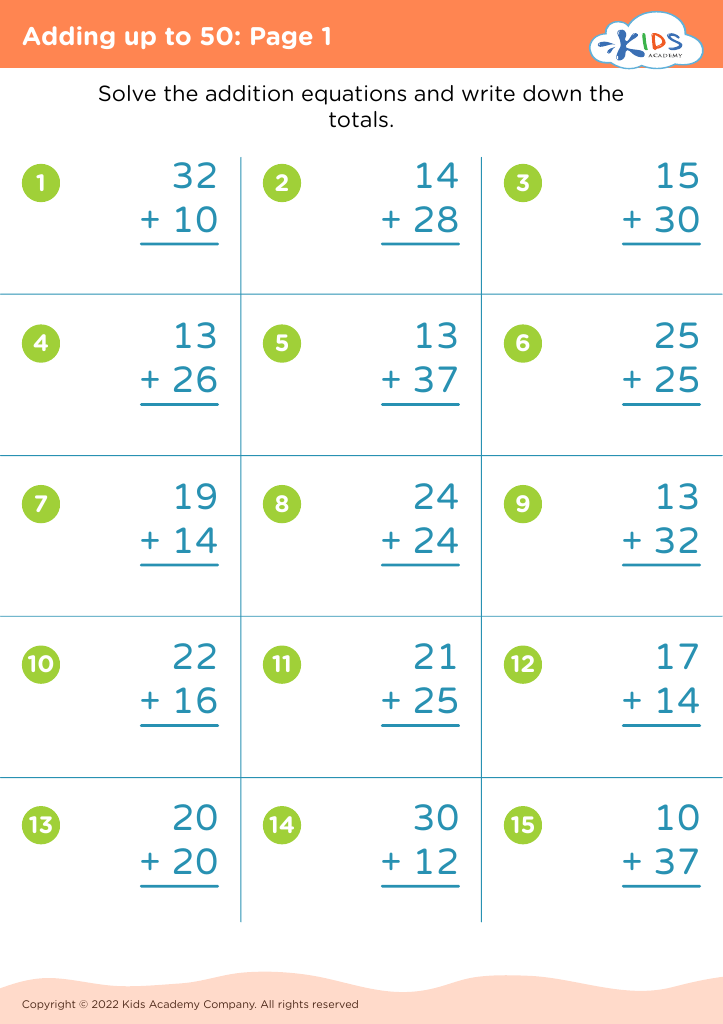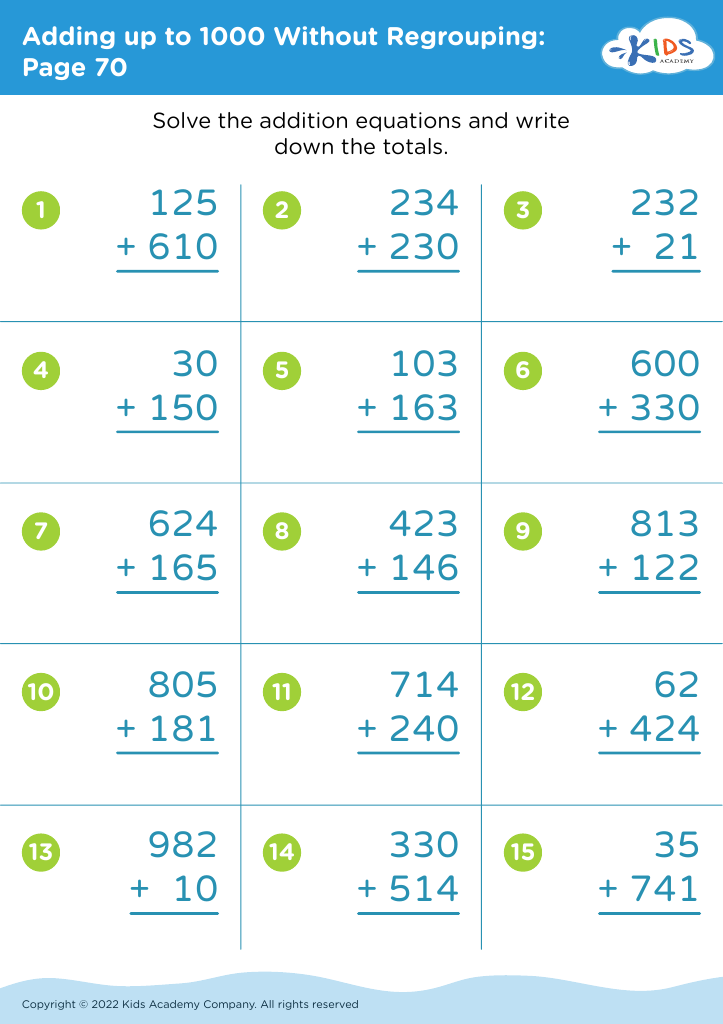Basic Addition Addition Worksheets for 7-Year-Olds
16 filtered results
-
From - To
Our Basic Addition Worksheets for 7-Year-Olds offer engaging and fun activities designed to enhance early math skills. Through vibrant visual aids and interactive tasks, these worksheets help children practice and master addition, building a strong foundation for future mathematical concepts. Suitable for home or classroom use, they support kids in developing confidence and proficiency with sums up to 20. Perfect for parents and educators, these materials align with curriculum standards, ensuring learners grasp essential skills while enjoying their educational journey. Visit Kids Academy to explore our wide range of printable resources and give your child a head start in math!
Parent and teacher involvement in a 7-year-old child's mastery of basic addition is crucial, as it lays the fundamental groundwork for future mathematical learning and overall cognitive development. At this age, children begin to form critical thinking and problem-solving skills. Understanding basic addition solidifies their grasp of number relationships and arithmetic principles, creating a scaffold upon which more complex mathematical concepts can be built.
Basic addition facilitates real-world skills, such as counting money, telling time, and measuring ingredients, thereby enhancing a child's independence and confidence. Furthermore, early success in math fosters a positive attitude toward the subject, reducing math anxiety that can develop later on.
Consistent practice in basic addition also improves a child's memory and attention span. Teachers can use engaging activities like games, visual aids, and hands-on manipulatives to make learning enjoyable, while parents can reinforce these skills in everyday activities. Providing a supportive and enthusiastic learning environment ensures that children perceive math not as a chore, but as an intriguing and integral part of their worldview.
Ultimately, caring about basic addition for 7-year-olds means investing in their long-term academic and life success. With solid arithmetic foundations, children are better prepared to tackle more advanced educational challenges, laying the groundwork for lifelong learning and achievement.
